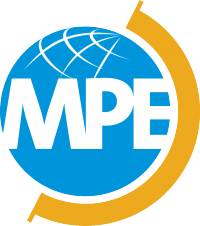December 2018
The program on Mathematics of Planet Earth (MPE) coordinated activities exploring applications of the mathematical sciences to problems affecting the planet at research centers around the world for the entire year of 2013. When the year ended, it was clear that there was still much left to explore, so the MPE 2013+ project, led by DIMACS and involving individuals and institutions from across the US, was launched to extend the activities and focus on the role of mathematical sciences to serve the planet.
The MPE2013+ project built on the year-long 2013 program and continued its efforts to: involve mathematical scientists in addressing problems of the planet; enhance collaborations between mathematical scientists and other scientists; involve students and junior researchers in the effort; and encourage life-long commitment to working between disciplines to solve problems of society. MPE2013+ was organized around five research clusters, each emphasizing a particular research theme. These were: Sustainable Human Environments; Global Change; Data-aware Energy Use; Natural Disasters; and Management of Natural Resources. Each cluster began with a broad workshop that provided an overview of the cluster theme, and proceeded with additional workshops on more focused topics within the overarching theme. Education was a crucial component of the entire MPE2013+ effort. Educational issues were discussed at each workshop and a special sixth cluster of workshops explored Education for the Planet Earth of Tomorrow.
MPE2013+ ran for five years and organized a total of 23 workshops whose participants included undergraduate and graduate students, junior and senior faculty, workers at government agencies and nonprofit organizations, and PK-12 teachers. Participants initiated research papers, and the vast majority of those surveyed reported they learned a great deal, advanced their research, and acquired materials for use in their classrooms.
The MPE 2013+ workshops are listed below with designations in parentheses indicating the associated theme (SHE = Sustainable Human Environments; GC = Global Change; ND = Natural Disasters, DEU = Data-aware Energy Use; NR = Management of Natural Resources; EPE = Education for Planet Earth):
- Challenges and Opportunities - Introducing Participants to MPE2013+ Topics (All themes)
- Workshop on Sustainable Human Environments (SHE)
- Workshop on Global Change (GC)
- Workshop on Data-aware Energy Use (DEU)
- Workshop on Natural Disasters (ND)
- Workshop on Management of Natural Resources (NR)
- Workshop on Education for the Planet Earth of Tomorrow (EPE)
- International Workshop on Citizen Science (SHE, EPE)
- Workshop on Connecting Community Colleges to MPE Sustainability Activities (EPE)
- Workshop on PK-12 Education for the Planet Earth of Tomorrow (EPE)
- Workshop on Material Transport in Geophysical Flows (ND)
- Workshop on Zika (ND, GC)
- Workshop on Appropriate Complexity Modeling of the Impacts of Global Change on Ecosystems (GC, NR)
- Workshop on PK-12 Education for the Planet Earth of Tomorrow: STEM Educator Symposium (EPE)
- Workshop on Chesapeake Fisheries: From Oysters to Economics (NR)
- Workshop on Modeling Food Systems (ND, NR)
- Workshop on Developing Sustainability Modules for the Community College Classroom (EPE)
- Not in My Back Yard (NIMBY): Mathematical and Computational Tools for Decision Making (SHE, NR, EPE)
- It’s Not Easy Being Green: Employing Citizen Science to Map Reptile and Amphibian Distributions (EPE)
- Workshop on Mathematics of Planet Earth - The Future (All themes)
- Workshop on Urban Environmental Sustainability in a Smart and Connected World (SHE)
- Workshop on Global Change and Vector-borne Diseases: Mapping Emerging Infectious Diseases (ND, GC)
- Workshop on Automated Biometric Identification of Individual Cheetahs and Leopards (NR)
These activities sparked a variety of new ideas and collaborations. The urban sustainability cluster led to new techniques for estimating future emissions and new ideas for using information technology to inform commuters about better transportation alternatives in real-time. The natural disasters cluster produced new ideas on how an emerging infectious disease succeeds in moving from one location to another and new thoughts on energy and environmental considerations in growing food. This cluster included participation from government agencies such as CDC, FEMA, and state and local health departments. Other clusters were successful in bridging across disciplines. As an example the workshop on automated biometric identification of cheetahs and leopards led to a multi-disciplinary collaboration of experts in conservation biology, data visualization, machine learning, teacher education, mathematical modeling, sustainability, and data science to study new approaches to count endangered species.
A lasting outcome greatly benefitting from the project is a forthcoming book on Mathematics of Planet Earth edited by Hans Kaper and Fred Roberts (DIMACS) due to be published by Springer in 2019. Project leaders are also exploring other ways to sustain the momentum for interdisciplinary collaborations to address challenges facing the planet. Among the possibilities under consideration is a new journal on MPE themes. Further activities will also be coordinated through a SIAM activity group (SIAG) on MPE that was formed in 2016 as an outgrowth of MPE-related activities occurring since the 2013 worldwide program. While not specifically an outcome of the MPE2013+ project, it would be fair to say that the continued emphasis on MPE helped maintain enthusiasm for the topic and for building a lasting community. The MPE SIAG held a SIAM conference on Mathematics of Planet Earth in both 2016 and 2018 and will hold such conferences at least every other year going forward, some expected to be joint with organizations in MPE subject matter topics.
Printable version of this story: [PDF]


